by Daniel Hathaway
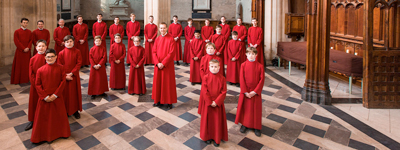
The choir of boys and men dates from 1379, when William of Wykeham, the founder of Winchester College, established an educational outpost named The Warden and Scholars of St. Mary’s College of Winchester in Oxford. That title being both unwieldy and confusing (there was already a college of St. Mary in Oxford), the institution soon came to be known as New College.
New College Choir now has a relatively new director in Robert Quinney, who in 2014 replaced Edward Higginbottom after the latter’s four decades serving New College. Quinney assumed the directorship of the 30-voice ensemble after an organ scholarship at King’s College, Cambridge; an assistantship at Westminster Abbey (where he played for the wedding of Prince William and Kate Middleton); and a brief tour of duty as organist of Peterborough Cathedral.
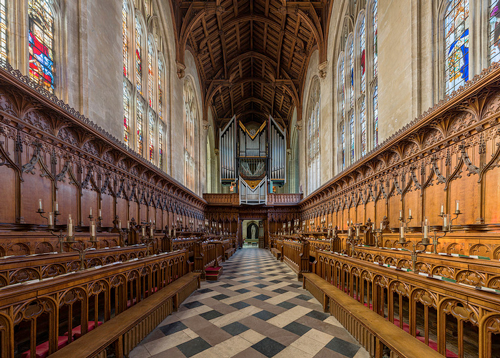
That inheritance includes the ensemble’s discography of more than 100 CDs, its worldwide reputation through tours and broadcasts, and its distinctive sound that makes the choir instantly recognizable from its peer ensembles. That may change slightly under Quinney’s watch, but not radically. “Because Edward and I are different people, the Choir is going to sound a bit different,” he said. “It would be rather odd if it didn’t.”
Part of that difference has to do with repertory. “Edward’s very deep affinity for French Baroque music found its way into the Choir’s rhythm,” Quinney said. “My interest is in the German Baroque — Bach and his predecessor Heinrich Schütz. Just move a couple hundred miles to the east, and that’s where I feel most comfortable.”
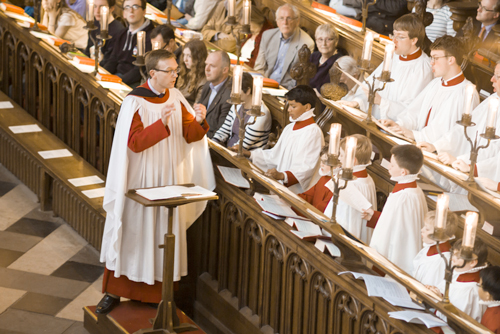
New College Choir’s program at Trinity Cathedral will include such Anglican favorites as William Byrd’s Vigilate and Ave verum corpus, Patrick Hadley’s My beloved spake, William H. Harris’s Faire is the heaven, and Charles Villiers Stanford’s Te Deum in C. New College’s assistant organist Timothy Wakerell and organ scholar Josef Laming will play solo works by Bach and Messiaen, and fully one-quarter of the program will be devoted to three recent choral works.
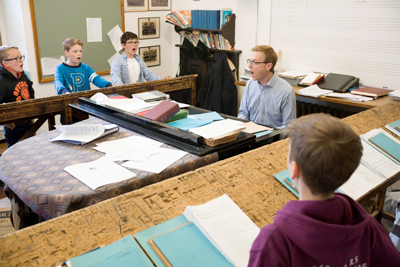
Quinney asked Matthew Martin, a colleague who is organist of Oxford’s Keble College, to write a special piece for the Choir’s 2015 visit to the Vatican to sing with the Sistine Chapel Choir. “There were requirements: the piece had to be sung at the Offertory at Mass, last no longer than four minutes, and set an English text on the subject of church unity,” Quinney said. Despite its Latin title, Ut unum sint (“That they might all be one”), Martin did set the text from the Gospel of John in the Choir’s mother tongue.
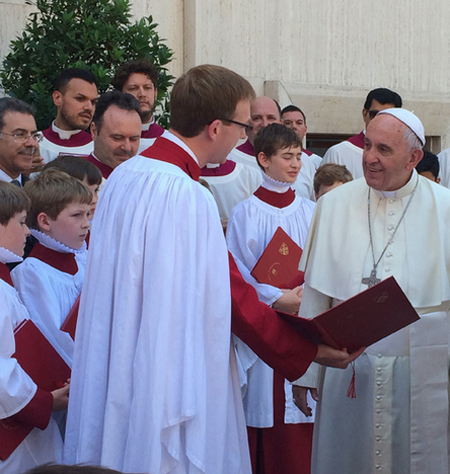
Quinney’s ‘day in the life’ at Oxford is different from his schedule at Westminster Abbey and Peterborough Cathedral. Some might think it easier, but think again. “Cathedral organists would say, ‘You know, those people at Oxford only have very short terms,’” Quinney said. “It’s certainly true that we don’t sing at Christmas and Easter, which fall during vacation, but we do a daily service apart from Wednesday, so we’re pretty busy.”
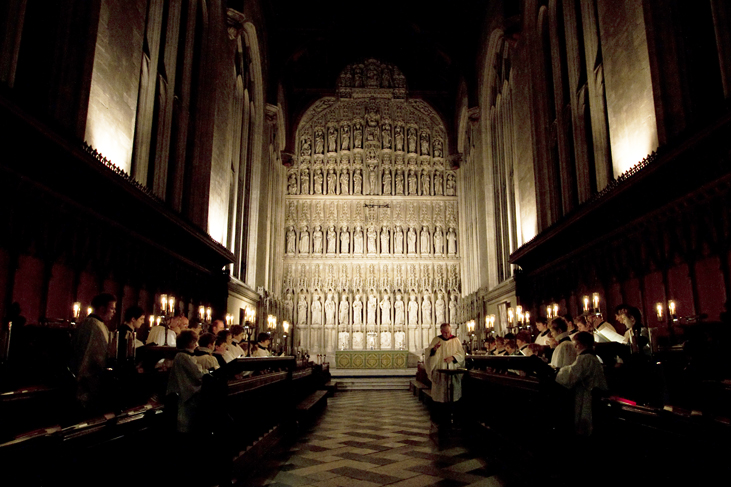
Although recruiting boys for the Choir has its challenges, Quinney thinks the old idea that singing is for girls while playing sports is a manly occupation is changing for the better. “Boys these days are more sophisticated about negotiating gender lines,” he said. “They flourish when working together as a team, and there’s a direct analogy there between sports and choirs.”
With a son of his own in the New College Choir, Quinney sees choral issues both from a professional and a parental point of view. “I find myself being a father and a teacher at different times,” he said, adding that his daughter sang in his girls’ choir at Peterborough. “It’s wonderful to be able to share my love of music in a very direct way with my children.”
Published on ClevelandClassical.com March 27, 2017.
Click here for a printable copy of this article



